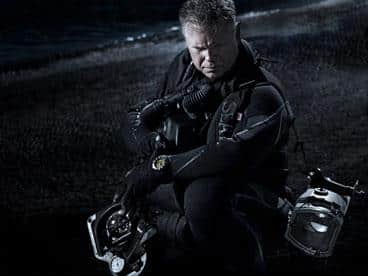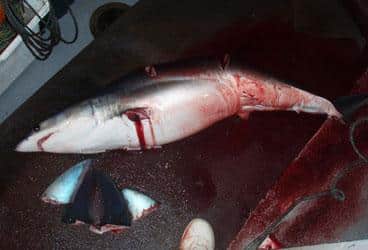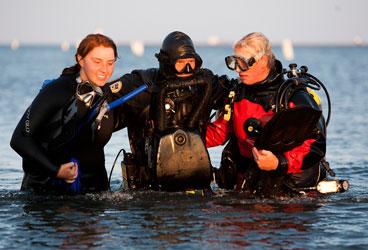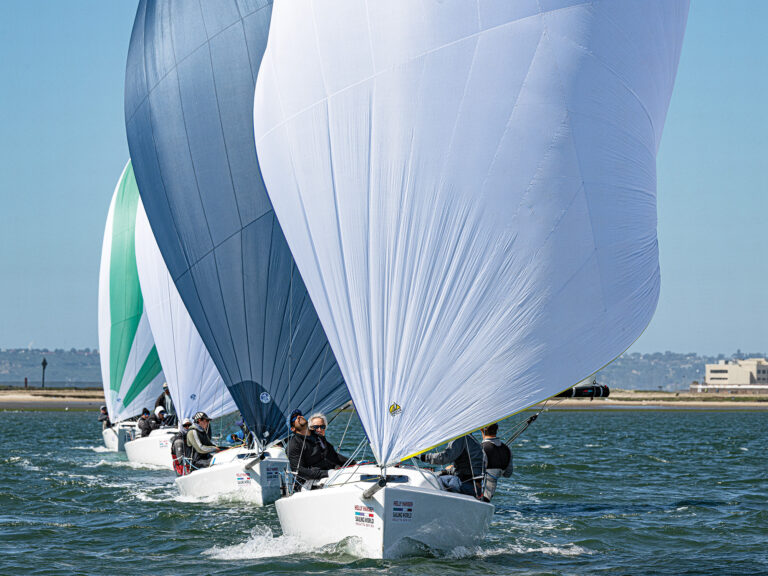Scott Cassell is a former special forces diver, a very tough guy who spends a lot of his time underwater. I met Cassell back in 2005, when I went diving with him among the rapacious Humboldt Squid in the Sea Of Cortez, and wrote a story about it.
So I was glad to hear that he has once again answered the call, this time to fight for the health of the oceans.

www.30miledive.com
In truth, Cassell has always been a warrior for the seas. He has devoted his life to exploring the oceans and learning what he can. But he is mobilized more than ever by a disaster that any sailor—and, in my view, any human—should care deeply about: the annual holocaust that the human race is inflicting on the world’s shark populations. You can read more about what is happening, and what it all means, here. But the bottom line is that humanity is killing 70-100 million sharks a year—mostly in the name of soup—and we have likely wiped out about 90 percent of the pelagic shark population over the past few decades.

www.sharksavers.org
Our culture, and the entertainment industry driving it, knows there’s profit in hyping shark attacks on humans.
But sharks kill maybe ten humans a year. You can’t even begin to compare that to the almost unimaginable number of 100 MILLION. It’s all you need to know to understand that the obsession should be reversed.
That’s what Cassell is fighting for now. To draw attention to what is happening under the surface, he went there himself last month, and tried to set a world record by swimming 30 miles underwater, from Catalina Island to San Pedro. Those are waters he has spent a lot of time in over the years, and he chose to make the swim because he has come to realize that he hardly ever sees sharks there anymore. Back in the 80s, he used to see 60 or more sharks during a good dive. These days, hardly any. So he decided to swim 30 miles underwater and take stock.
30-MILE-DIVE from GLOBAL REEF on Vimeo.
Anyone who dives will know that swimming that distance underwater is no simple stunt. And in fact Cassell ran into a gear problem, which led to a breathing problem, which led to a near-blackout. That forced him to surface, so the world record was off. But it didn’t stop him from getting back in the water after sorting the problem out, and completing his underwater journey, which kept him underwater for about 10 hours.

www.30miledive.com
So what did Cassell achieve? As he feared, what he saw on the way wasn’t encouraging: “I saw three Mola mola, four sea lions, about six dolphins, and a huge school of sardines. But I didn’t see a single shark—and that breaks my heart. It’s absolutely a tragedy.” In a way, that proves something that doesn’t surprise us. Anyone who has been paying attention knows we are strip-mining the oceans of life. In fact, the scale of the problem, and the radical changes in human culture and economies that are required to reverse the destruction, are almost paralyzing.
But, for me, what Cassell achieved is this: he showed that no matter how bleak the outlook, it is important to keep fighting. Do whatever you can do to spread the word or take action to help save the seas. Sailors more than most have that obligation. You never know what impact it might have in the end. Fight. Don’t give up. That’s all anyone can do.
Here’s the extended cut of Cassell’s fight, with footage of Cassell’s underwater swim.
30-MILE-DIVE: Luminox Version-Extended Expedition Footage from GLOBAL REEF on Vimeo.









